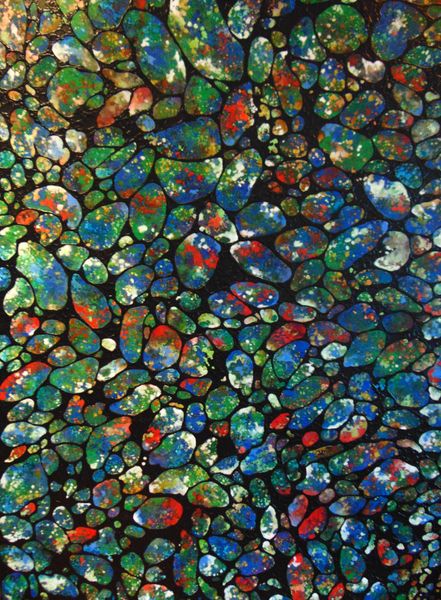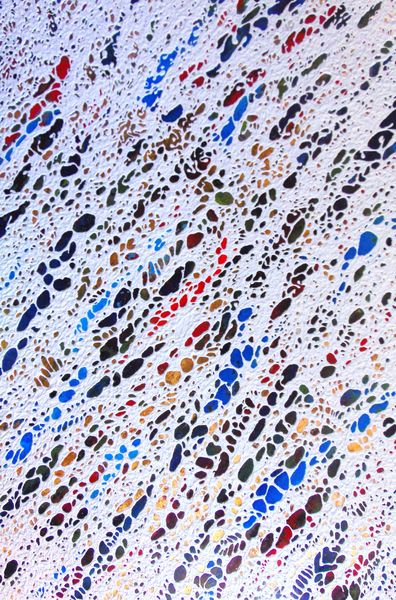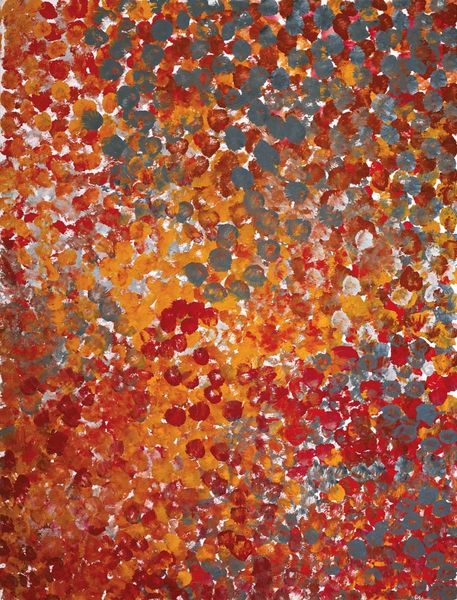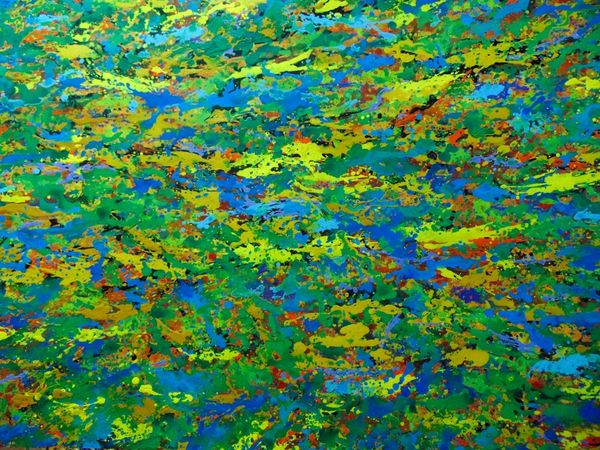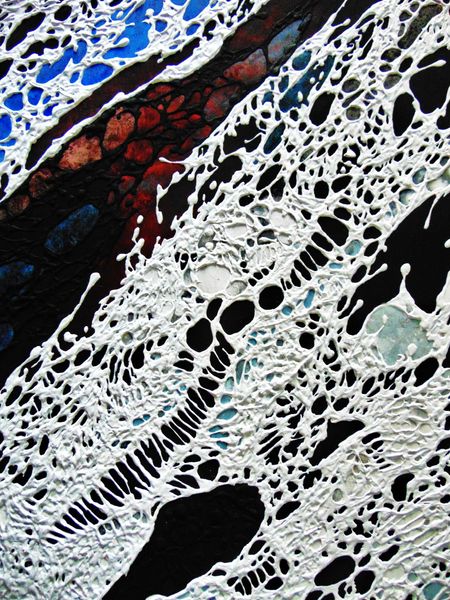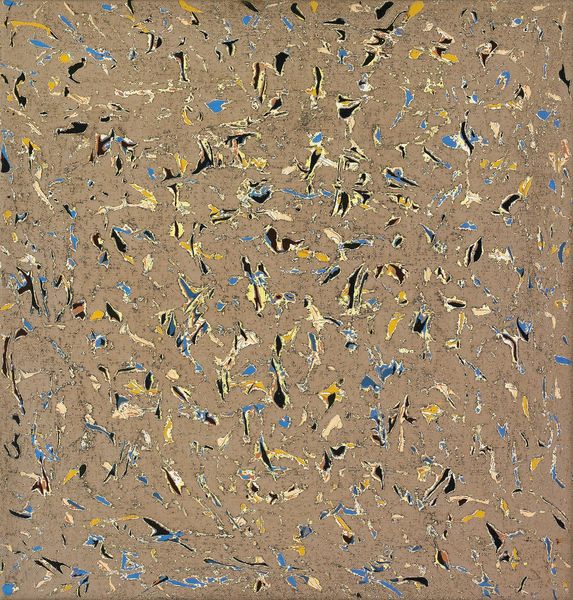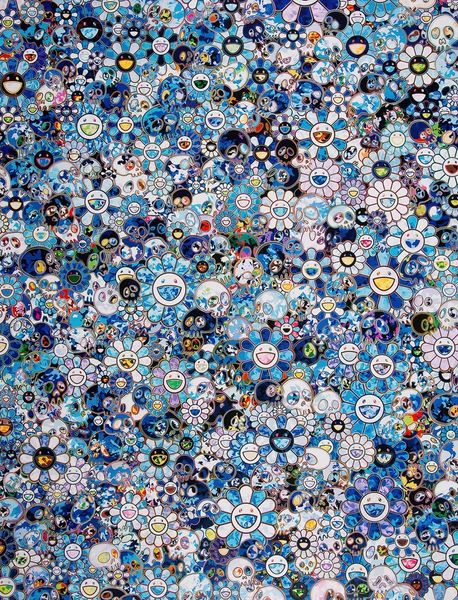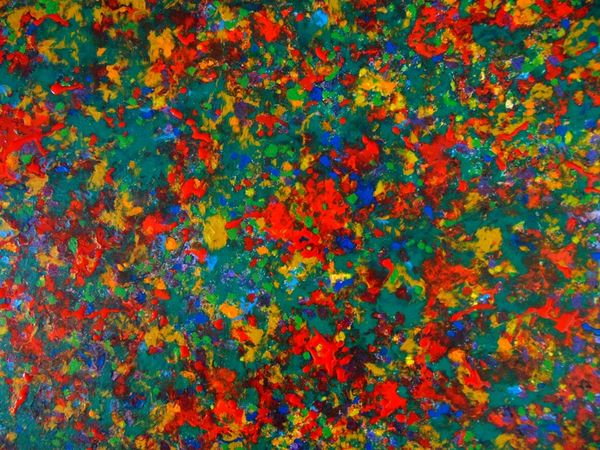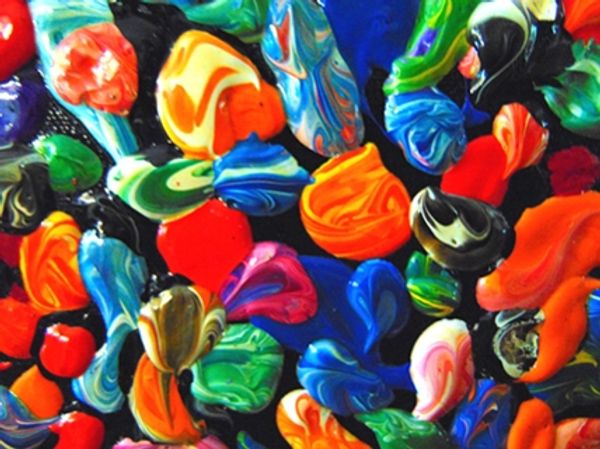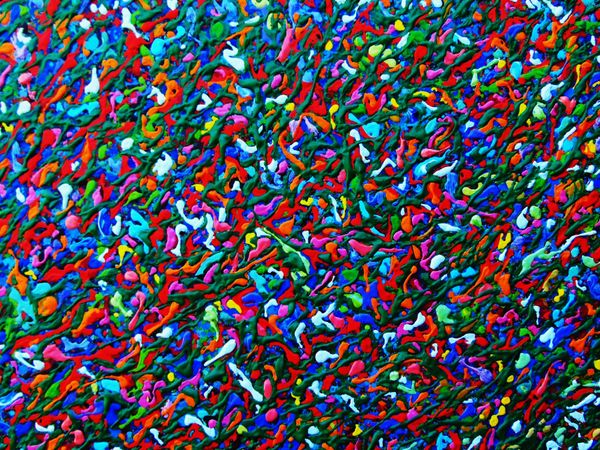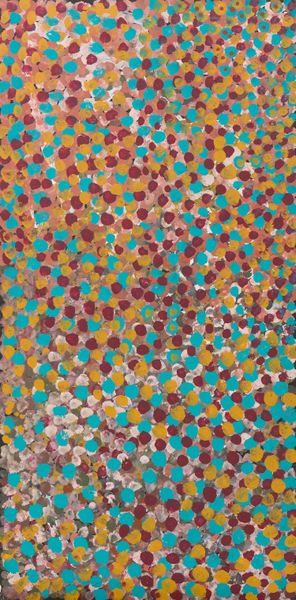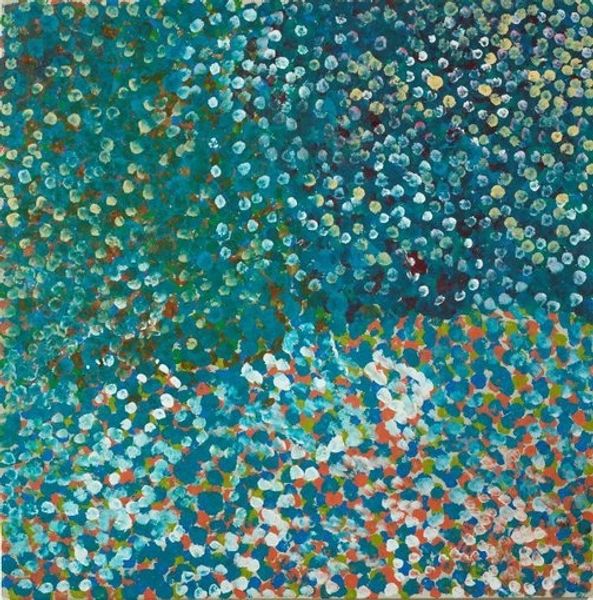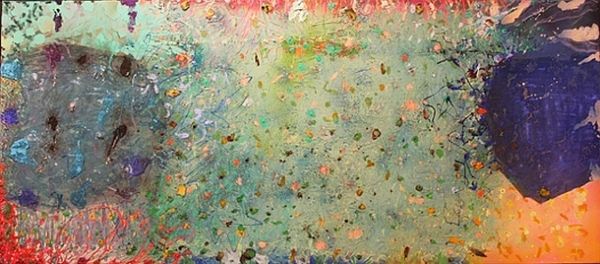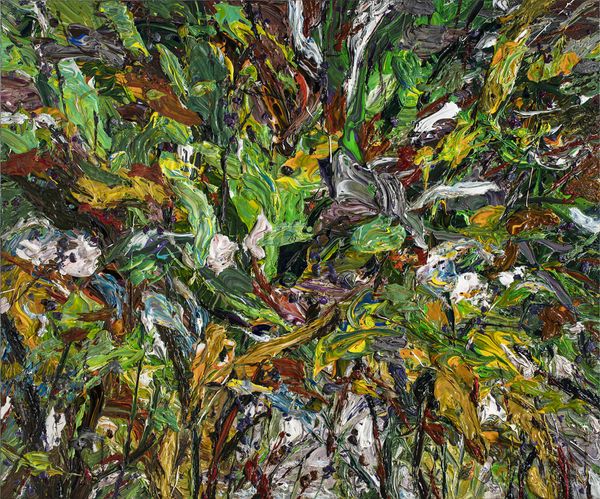
Dimensions: 195 x 130 cm
Copyright: Requena Nozal,Fair Use
Curator: Requena Nozal’s work from 2017, an acrylic painting titled “Placnton,” presents us with a fascinating exercise in visual complexity. What are your initial impressions? Editor: It kind of explodes, doesn't it? Like the universe having a really good time at a rave. There’s a feeling of overwhelming abundance and vibrancy, contrasted against what seems to be a black canvas. Curator: The dark ground certainly accentuates the chromatic intensity of the myriad shapes, each seemingly a discrete unit yet participating in an overall field. Do you find the composition entirely random, or do you detect an underlying order? Editor: Order out of chaos, perhaps? I mean, I can’t help but see it like peering through a microscope, observing life at its most basic—a sort of cellular dance floor, maybe? Curator: Precisely. One could invoke the tradition of abstract expressionism here, particularly its engagement with gesture and all-over composition, challenging conventional notions of pictorial space. Note the consistent texture suggesting the materiality of the paint itself. Editor: True. Up close, you notice the almost pebbled quality of the paint, making it feel both fragile and incredibly dense. There's also a weird comfort in repetition; each element is unique but ultimately part of a larger whole, mirroring everything, you know? Curator: The repeated motif invites reflection on ideas of interconnectedness and pattern formation. This oscillation between the micro and the macro suggests that Nozal might explore questions concerning nature and cosmology. The picture's optical dynamism destabilizes the viewer's perceptual expectation by generating continuous movement, causing one’s eyes to move throughout the surface, struggling to locate the main object. Editor: Maybe the 'main object' is the feeling it stirs, that constant buzz and sense of teeming possibilities. Like an ocean of microscopic wonder, which could become whatever. I kind of like the freedom in it. Curator: Yes. A freedom anchored, interestingly, by quite rigorous compositional principles. In reflecting on the artwork, one appreciates that tension. Editor: Absolutely! From my perspective, "Placnton" seems to highlight nature's hidden, electric exuberance. The unseen made tangible—even a little bit funky.
Comments
No comments
Be the first to comment and join the conversation on the ultimate creative platform.
